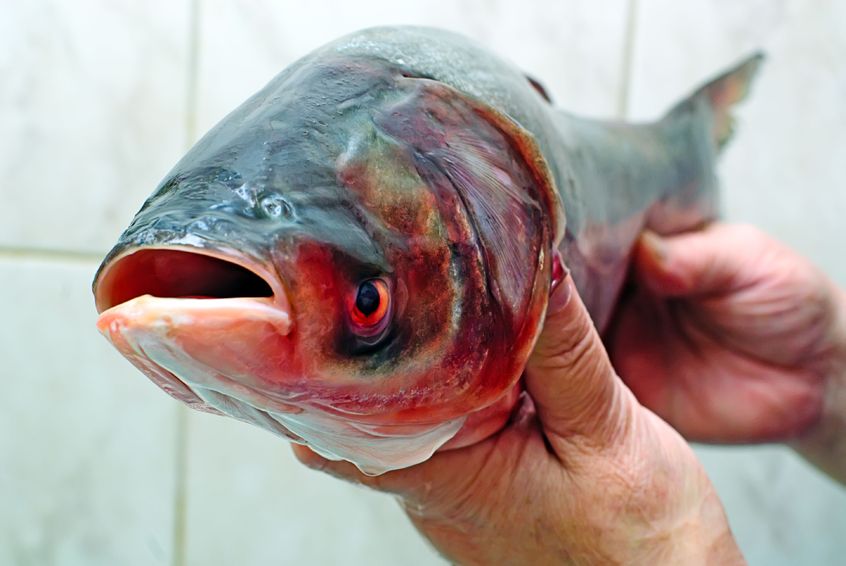
Electrofishing Asian Carp at Barkley Dam. Photo by USFWS, via Flickr.
During July’s industry trade show, ICAST, the Aquatic Invasive Species (AIS) Blue Ribbon Commission held its first listening session. The commission, which launched earlier this year, brings together leaders from the sportfishing, boating and outdoor recreation communities to identify issues and solutions to help control aquatic invasive species. ICAST offered an ideal setting to bring pro anglers and leading conservationists together to discuss the roles that the recreational fishing industry and community play in preventing and combatting these species.
What Are Aquatic Invasive Species
Aquatic invasive species (AIS) are plants and animals that are not native to the aquatic ecosystems that they now inhabit. AIS may exacerbate competition for scarce food sources, predate on native species thereby threatening their population sustainability, or otherwise disrupt natural ecosystems. Some invasive species destroy vegetation that native species rely on, reducing the quality of fish habitat, while invasive plants can degrade water quality and deplete oxygen crucial for fish life.
AIS are not unique to a specific region of the United States, as different invasive species can be found throughout the entire country. For example:
- Since the 1990s, silver carp, native to East Asia, have spread throughout the Mississippi, Missouri and Ohio River Basins, upending food chains by competing with native fish for phytoplankton.
- Zebra mussels are expanding their reach throughout the upper Midwest and spilling over into western states, filtering algae on which native species rely.
- Lionfish continue to expand at astonishing rates and are harming native coral reef ecosystems in the Atlantic, Gulf of Mexico, and the Caribbean.
ASA has long advocated for the prevention, detection and control of aquatic invasive species. ASA and its members have worked to safeguard recreational fishing by hosting briefings with members of Congress and Capitol Hill staff and advocating for the passage of legislation to contain and mitigate AIS.
What Is The AIS Blue Ribbon Commission?
The AIS Blue Ribbon Commission was established by leading companies and organizations in the recreational boating and fishing industry to develop policy solutions to stop and reverse the spread of AIS throughout the United States.
By meeting with pro anglers such as Mark Menendez and Ish Monroe, top AIS scientists and federal and state policy leaders, the commission will draw on input from a wide range of stakeholders to deliver comprehensive recommendations.
The commission plans on releasing a series of policy reforms that can mitigate invasive species and prevent their spread throughout waterbodies.
During ICAST, a working group composed of commission members discussed the following:
- Engage with Congress and federal agencies on how to use funding from the Infrastructure Investment and Jobs Act to improve and expand boat cleaning facilities and boat ramps.
- Work with fishing tackle and boat manufacturing marketing directors to help educate the public on ways to catch and eliminate invasive species.
- Encourage state and federal agencies to share and adopt best management practices for preventing and controlling invasive species.
- Identify successful programs that incentivize anglers and commercial harvesters to catch invasive species and ensure that the funding for these programs remains in place.
The next commission meeting is scheduled for August 17 and will be held in Alaska at the Kenai Classic. By the end of 2022, the commission will release a white paper on its findings. ASA and our partners will then take the commission’s white paper to Capitol Hill.
Mike Leonard, ASA’s Vice President of Government Affairs, serves on the commission. In addition to Mike, Mark and Ish, I would like to thank commission members for joining us in Orlando. A full list of members can be found here.
For more information on ASA’s work on aquatic invasive species, feel free to contact me, Connor Bevan, ASA’s Inland Fisheries Policy Manger, or visit the Keep America Fishing Issues Page.
Share This Article, Choose Your Platform:
Recent Posts



